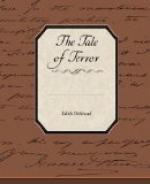An innate reticence and shyness of temper held Hawthorne, as if by a spell, somewhat aloof from life, and no one realised more clearly than he the limitations that his detachment from humanity imposed upon his art.
Of Twice-Told Tales he writes regretfully:
“They have the pale tint of flowers that blossomed in too retired a shade... Instead of passion there is sentiment and even in what purport to be pictures of actual life we have allegory, not always so warmly dressed in its habiliments of flesh and blood as to be taken into the reader’s mind without a shiver. Whether from lack of power or an inconquerable reserve, the author’s touches have often an effect of tameness. The book, if you would see anything in it, requires to be read in the clear, brown twilight atmosphere in which it was written; if opened in the sunshine, it is apt to look exceedingly like a volume of blank pages”;
and in his Notebook (1840) he confesses:
“I used to think I could imagine all the passions, all feelings and states of the heart and mind, but how little did I know! Indeed we are but shadows, we are not endowed with real life, and all that seems most real about us is but the thinnest shadow of a dream—till the heart be touched.”
Whether he is threading the labyrinths of his imagination or watching the human shadows come and go, Hawthorne lingers longer in the shadow than in the sunshine. He was not a man of morose and gloomy temper, disenchanted with life and driven by distress or thwarted passion to brood in solitude. An irresistible, inexplicable impulse drives him towards the sombre and the gloomy. The delicacy and wistful charm of the words in which Hawthorne criticises his own work and character reveal how impossible it would have been for him to force his wayward genius. His imagination hovers with curious persistence round eerie, fantastic themes:
“An old looking-glass. Somebody finds out the secret of making all the images reflected in it pass again across its surface”—a hint skilfully introduced into the history of old Esther Dudley in The Legends of the Province House, or:




